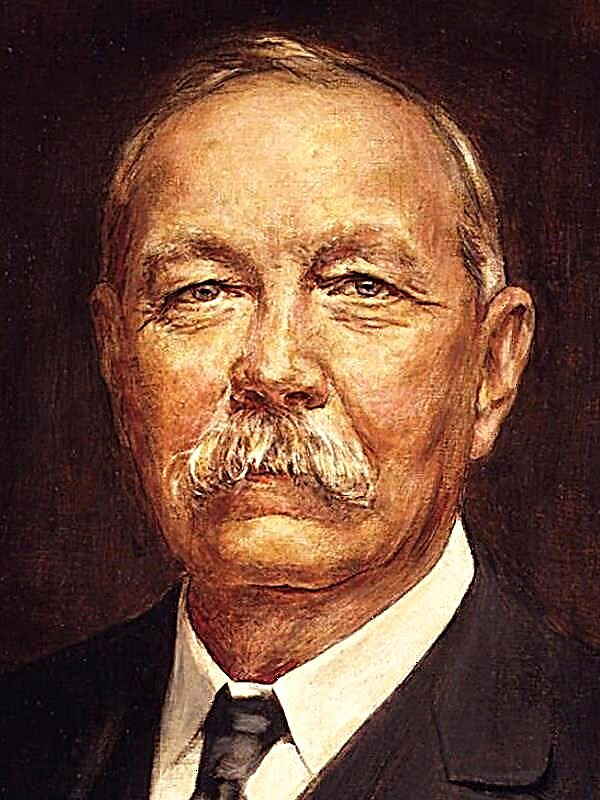These letters constitute a polemic of the author with the Jesuits, fierce persecutors of the teachings of the Dutch theologian Jansenius, who opposed the true believers to the rest of the mass formally accepting church teaching. In France, the bastion of Jansenism was the Paris Abbey of Por Royal, within the walls of which Pascal spent several years.
Polemic with the Jesuits, the author primarily comes from common sense. The first topic of discussion is the doctrine of grace, or rather, the interpretation of this doctrine by the Jesuit fathers, who represent the official point of view, and supporters of Jansen. The Jesuits acknowledge that all people are endowed with dominant grace, but in order to be able to act, they need effective grace, which God does not send to everyone. The Jansenists, on the other hand, believe that any prevailing grace in itself is effective, but not all possess it. So what is the difference? - the author asks, and immediately answers: “And it turns out that the discrepancy with the Jansenists among them (Jesuits) is exclusively at the level of terminology.” Nevertheless, he goes to the theologian, an ardent opponent of the Jansenists, asks him the same question, and gets the answer: it’s not a matter of grace given to all or not to everyone, but that the Jansenists don’t recognize that “the righteous have the ability to obey the commandments of God exactly as we understand it. ” Where is it here to care about logic, or at least common sense!
The Jesuit Fathers are equally inconsistent in their discussion of sinful acts. Indeed, if acting grace is a revelation from God through which he expresses his will to us and encourages us to desire to fulfill it, then what is the discrepancy with the Jansenists, who also see God's gift in grace? But in the fact that, according to the Jesuits, God sends down the grace of power to all people at every temptation; “If, at all temptations, we did not have grace to keep us from sin, then no matter what sin we commit, it cannot be imputed to us.” Jansenists, however, claim that sins committed without effective grace do not become less sinful from this. In other words, the Jesuits ignorantly justify everything! However, it has long been known that ignorance does not relieve the offender of responsibility. And the author begins to speculate, why did the Jesuit fathers resort to such sophisticated casuistry. It turns out that the answer is simple: the Jesuits “have such a good opinion of themselves that they consider it useful and as if necessary for the good of religion, so that their influence spreads everywhere.” To do this, they choose casuists from their midst, who are ready to find a decent explanation for everything. So, if a person comes to them who wants to return the unjustly acquired property, they will praise it and strengthen it in this pious deed; but if another person comes to them who does not want to return anything, but wants to receive absolution, they will equally find reasons to give absolution to him. And so, “through such a leadership, helpful and accommodating,” the Jesuits “extend their hands to the whole world. To justify their hypocrisy, they put forward the doctrine of probable opinions, which consists in the fact that, based on proper reasoning, a learned person can come to one conclusion as well as another, and the one who knows is free to follow the opinion that he will like best. “Thanks to your likely opinions, we have complete freedom of conscience,” the author mockingly remarks. And how do casuists answer their questions? “We answer what is pleasant to us, or rather, what is pleasant to those who ask us.” Of course, with this approach, the Jesuits have to invent all kinds of tricks in order to evade the authority of the gospel. For example, the Scripture says, “From your excess, give alms.” But casuists found a way to free rich people from the obligation to give alms, explaining in their own way the word "excess": "What secular people put aside in order to elevate their position and the position of their relatives is not called excess. Therefore, it is unlikely that there will ever be an excess of secular people and even kings. ” The Jesuits are just as hypocritical in drawing up the rules "for all kinds of people", that is, for the clergy, the nobility and the third estate. So, for example, they allow the worship of the mass of the priest, who fell into the sin of commission, solely on the basis that if now with all severity "to excommunicate the priests from the altar", there will literally be nobody to serve the mass. "And yet a large number of dinners serves to greater glory of God and to greater benefit to the soul." No less flexible are the rules for servants. If, for example, a servant fulfills the “immoral commission” of his master, but does it “only for the temporary benefit of his own”, such a servant can easily be scored. The theft of the property of the owners is also justified, "if other servants of the same rank receive more elsewhere." At the same time, the author mockingly remarks that for some reason such an argument does not work in court.
And here is how the Jesuit Fathers “combined the rules of the gospel with the laws of the light.” “Do not give evil to anyone for evil,” the Scripture says. “From this it appears that a military man can immediately begin to pursue the one who injured him, though not with the purpose of rendering evil for evil, but in order to preserve his honor.” In a similar way, they justify the killings - the main thing is that there is no intention to do harm to the enemy, but only a desire to do good for oneself: "one should kill only when it is appropriate and there is a good probable opinion." “Where do such revelations come from!” - the author exclaims in confusion. And instantly receives an answer: from "very special insights."
Theft is just as peculiarly justified: “If you meet a thief who decides to rob a poor person, in order to divert him from this, you can show him some rich person that he can rob instead.” Similar reasoning is contained in a work entitled “The Practice of Love for the Neighbor” of one of the most respected Jesuits. “This love is really unusual,” the author notes, “to save from the loss of one to the detriment of the other.” No less curious are the Jesuits' reasoning about people involved in witchcraft: should they return money to their customers or not? “Yes” if “the fortuneteller is ignorant of the Black Book”, “no” if he is “a skilled sorcerer and did everything he could to find out the truth.” “In this way, sorcerers can be made knowledgeable and experienced in their art,” the author concludes. His opponent sincerely asks: “Isn’t it useful to know our rules?”
Following this, the author cites no less curious arguments from the Jesuit Father's book “Sum of Sins”: “Envy of the neighbor’s spiritual good is mortal sin, but envy of the temporary good is only excusable sin”, for temporary things are insignificant for the Lord and his angels. It also contains the excuse of the seducer: "the girl owns her virginity as well as her body," and "may have them at his discretion."
A striking innovation is the doctrine of “mental clauses”, allowing false witness and false oaths. It turns out that after saying aloud: “I swear I didn’t do this”, add quietly “today” or something similar, “in a word, give your speeches a turn that would be given to them by a skilled person”.
The Jesuits also deal with church sacraments no less briskly, requiring spiritual and other efforts from the parishioner. For example, you can have two confessors - for ordinary sins and for the sin of murder; not to answer the question, “is sin habitual” in which you repent. It is enough for the confessor to ask whether the repentant hates the soul, and, receiving a “yes” in response, take a word and give absolution. Sin should be avoided, but if circumstances draw you to it, then sinning is excusable. And, perfectly turning upside down all ideas of decency, the Jesuits exclude slander from among the most disgusting sins. “Slandering and attributing imaginary crimes in order to undermine the credibility of those who speak badly of us is only a forgivable sin,” they write. This teaching is so widely spread among the members of the order, the author notes that they call anyone who dares to challenge it, “ignorant and daring”. And how many truly pious people fell victim to the slander of these unworthy teachers!
“Do not try to pretend to be mentors; for this you have neither moral nor mental abilities, ”“ leave the church alone, ”the author calls on his opponents. Those in response fall upon him with accusations of heresy. But what evidence does the outraged Jesuit fathers give? And here are some: the author "of the members of Por Royal", the abbey of Por Royal "declared heretical", which means that the author is also a heretic. “Consequently,” the author concludes, “the whole burden of this accusation falls not on me, but on Port Royal.” And he again violently rushes into the battle in defense of the faith that exalts the human spirit: “God changes a person’s heart by pouring heavenly sweetness into his soul, which, overcoming carnal pleasures, produces that person, sensing, on the one hand, his mortality and his insignificance and contemplating, on the other hand, the greatness and eternity of God, receives an aversion to the temptations of sin, which excommunicate it from incorruptible good. Gaining his highest joy in God, which attracts him to himself, he is steadily attracted to him himself, with a feeling completely free, completely voluntary. "












